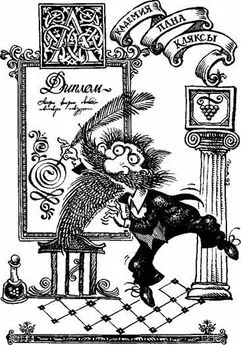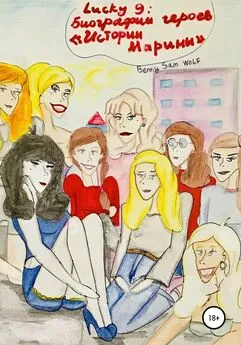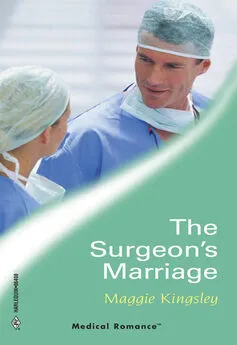Kingsley Amis - Lucky Jim
- Название:Lucky Jim
- Автор:
- Жанр:
- Издательство:неизвестно
- Год:неизвестен
- ISBN:нет данных
- Рейтинг:
- Избранное:Добавить в избранное
-
Отзывы:
-
Ваша оценка:
Kingsley Amis - Lucky Jim краткое содержание
Lucky Jim - читать онлайн бесплатно полную версию (весь текст целиком)
Интервал:
Закладка:
'What, finally, is the practical application of all this?' Dixon said in his normal voice. He felt he was in the grip of some vertigo, hearing himself talking without consciously willing any words. 'Listen and I'll tell you. The point about Merrie England is that it was about the most un-Merrie period in our history. It's only the home-made pottery crowd, the organic husbandry crowd, the recorder-playing crowd, the Esperanto…' He paused and swayed; the heat, the drink, the nervousness, the guilt at last joined forces in him. His head seemed to be swelling and growing lighter at the same time; his body felt as if it were being ground out into its constituent granules; his ears hummed and the sides, top, and bottom of his vision were becoming invaded by a smoky, greasy darkness. Chairs scraped at either side of him; a hand caught at his shoulder and made him stumble. With Welch's arm round his shoulders he sank to his knees, half-hearing the Principal's voice saying above a tumult: '… from finishing his lecture through sudden indisposition. I'm sure you'll all…'
I've done it now, he managed to think. And without even telling them… He drew air into his lungs; if he could push it out again he'd be all right, but he couldn't, and everything faded out in a great roar of wordless voices.
XXIII
'THAT'S all it was,' Beesley said the next morning. 'Quite understandable. But it was that whisky he gave you that really finished you, wasn't it?'
'Yes, I suppose I should have been all right without that. I can't tell Welch that, though.'
'No, of course you can't, Jim. But you can plead nervousness and the heat and so on. After all, you did pass out.'
'They'll never forgive me for wrecking a public lecture, though. And nervousness wouldn't make me imitate Neddy and the Principal, would it?'
They went in through the College gates. Three students hanging about there fell silent and nudged each other as Dixon passed. Beesley said: 'I don't know. You could try it, couldn't you? You've got nothing to lose.'
'No, you're right there, Alfred. Oh, it doesn't matter. I've had it anyway. There's the Christine business too. Welch'll know about that by now.'
'You mustn't be so gloomy. I don't think Welch would take any notice of what Bertram or whatever his bloody name is says to him. It's nothing to do with him what you do to his son's girl-friend, is it?'
There's the Margaret angle, you see. There's no doubt he'd look at it as letting her down. Which it was, of course, however you look at it.'
Beesley glanced at him without replying; then, as they went into the Common Room, said: 'Don't let it get you down, Jim. See you coffee-time?'
'Yes,' Dixon said absently. His stomach turned over as he recognized Welch's handwriting on a note in his pigeon-hole. He went out and upstairs reading it. Welch felt he ought to let him know, unofficially, that when the Council met next week, he would be unable to recommend Dixon's retention on the staff. He advised Dixon, also unofficially, to wind up his affairs in the district and leave as soon as possible. He would furnish what testimonials he could for any application Dixon might make for a new job, provided it were outside the city. He himself was sorry Dixon had got to leave, because he'd enjoyed working with him. There was a ps. telling Dixon he needn't worry about 'the matter of the bedclothes'; for his part, Welch was prepared to 'consider it settled'. Well, that was when Dixon felt a sharp stab of conscience at having let Welch down over the lecture, and a less slight one at having spent so much of his time and energy in hating Welch.
He went into the room he shared with Cecil Goldsmith and stood at the window. The sultriness of the previous few days had passed without thunder and the sky promised hours of sunshine. Alterations were being made to the Physics Laboratory; a lorry had drawn up by the wall, bricks and cement were being unloaded, and the sound of hammering could be heard. He could easily get a schoolteaching job; his old headmaster had told him at Christmas that a senior history post in the school wouldn't be filled until September. He'd write to him and say he'd decided he wasn't cut out for University teaching. But he wouldn't write today, not today.
What was he going to do today? He wandered from the window and picked up a fat and luxurious periodical that lay on Goldsmith's table, the journal of some Italian historical society. Something on the cover caught his eye and he turned to the relevant page. He'd never learnt any Italian, but the name at the head of this article, L. S. Caton, presented no difficulty, nor, after a minute or two, did the general drift of the text, which was concerned with shipbuilding techniques in Western Europe in the later fifteenth century and their influence on something or other. There could be no doubt about it; this article was either a close paraphrase or a translation of Dixon's own original article. At a loss for faces, he drew in his breath to swear, then cackled hysterically instead. So that was how people got chairs, was it? Chairs of that sort, anyway. Oh well, it didn't matter now. But what a cunning old… That reminded him. One of the things he'd got to do today was to see Johns and abuse, or even assault, him for his latest piece of treachery. He went out and down the stairs.
Reconstruction of the crime had been easy; by consulting Beesley and Atkinson, Dixon had deduced that Johns must have overheard the other two discussing the Christine tea-date and had taken the first opportunity of passing the news on to his friend and patroness. He could have done this, and so he must have done this; at any rate, Dixon had virtually Bertrand's word for it that Johns was the informer, however he got hold of the information. Hatred lit him up briefly like a neon sign as he tapped at the door of Johns's office and went in.
There was nobody there. Dixon advanced to the desk, where a lot of insurance policies lay. He pondered for a moment; had he done anything to deserve Johns's two betrayals? The decorations added to the face of the composer on the periodical? A harmless joke. The letter from Joe Higgins? A transparent piece of horseplay. Dixon nodded to himself and, clutching up a handful of the insurance policies, stuffed them into his pocket and left.
A few moments later he was descending cautiously into the boiler-house. There seemed to be nobody about. Coal-dust cracked under his feet as he nosed about among the boilers, looking for one in action. There must be one to heat the water for the various cloakrooms. Here it was, smoking vigorously. He picked up some sort of tool from the floor in front of it and shoved the lid aside. The policies burned very quickly and thoroughly; there wouldn't be any sort of trace. He put the lid back and ran up the stairs. Nobody saw him emerge.
What was he going to do now? He'd come up to College with, he realized, nothing very clear in mind, chiefly out of a reluctance to leave Beesley's company. Now he'd got the sack, however, he didn't want to wait about till coffee-time, when moreover he might run into Welch or the Principal. There was really no reason why he should ever come up here again, unless to remove his belongings. Well, that was clearly the next job, and it could be done in one go, because he'd never brought anything to College beyond two or three reference-books and some lecture-notes. He went back up to his room and started getting these together. Working in his home town, he reflected, would mean seeing less of Margaret, but not enough less, because her home and his were only fifteen miles apart. As experience had already proved, that was a reasonable, or not sufficiently unreasonable, journey to make for an evening together at least once a week during vacation-time. And three months of vacation lay just ahead.
On the way out of College, he found himself being approached by a man he didn't quite recognize, but about whose appearance there was something familiar. This man said: 'That was a very good lecture you gave us last night.'
'Michie,' Dixon said. 'You've shaved off your moustache.'
'That's right. Eileen O'Shaughnessy said she was browned-off with it, so I said farewell to it this morning.'
'Good advice, Michie. A great improvement.'
'Thanks. I hope you're fully recovered from your fainting fit or whatever it was?'
'Oh yes, thanks. No permanent injuries.'
'Good. We all enjoyed your lecture.'
'I'm very glad to hear it.'
'It went down like a bomb.'
'I know.'
'Pity you didn't manage to finish it.'
'Yes.'
'Still, we got the main drift.' Michie paused while a group of strangers went by, deluded visitors to the College's Open Week. He went on: 'I say… don't mind me asking this, do you? but some of us wondered if you weren't slightly… you know…'
'Drunk? Yes, I suppose I was, rather.'
'Been a row about it, I suppose? Or haven't they had time to get round to it yet?'
'Oh yes, they've had time.'
'Bad row, was it?'
'Well, yes, as these things go. I've got the push.'
'What?' Michie looked sympathetic, but neither surprised nor indignant. 'That's quick work. Well, I'm really sorry about that. Just over the lecture?'
'No. There'd been one or two other little departmental difficulties before, as you probably know.'
Michie was silent for a moment, then said: 'Some of us'll miss you, you know.'
'That's nice. I shall miss some of you.'
'I'm going home tomorrow, so I'll say good-bye now. I passed all right, I suppose? You can tell me now, can't you? I shan't hear till next week otherwise.'
'Oh yes, all your crowd are through. Drew failed, though. Is he a friend of yours?'
'No, thank God. Very satisfactory, that. Well, good-bye. I suppose I shall be doing Neddy's special subject after all next year.'
'Looks like it, doesn't it?' Dixon put his effects under his left arm and shook hands. 'All the best, then.'
'Same to you.'
Dixon went off down College Road, forgetting to take a last look at the College buildings until too late. He felt almost free of care, which, considering the circumstances, he thought rather impressive of him. He'd go home that afternoon; he'd have gone anyway in a couple of days. He'd come back next week to pick up the last of his stuff, see Margaret, and so on. See Margaret. 'Ooooeeeeyaaa,' he called out to himself, thinking of it. 'Waaaeeeoooghgh.' With his home so near hers, leaving this place wouldn't seem like a move on, but a drift to one side. That was really the worst of it.
He remembered now that this was the day he was to see Catchpole at lunch-time. What could the fellow want? No use wondering about that; the important thing was how to kill time until then. Back at his digs, he bathed his eye, which was beginning to fade a little, though its new colour promised to be just as disfiguring and a good deal less wholesome. A conversation with Miss Cutler about rations and laundry followed; then he had a shave and a bath. While he was in the water, he heard the phone ring, and in a few moments Miss Cutler tapped at the door. 'Are you there, Mr Dixon?'
'Yes, what is it, Miss Cutler?'
'A gentleman on the telephone for you.'
'Who is it?'
'I'm afraid I didn't get the name.'
'Was it Catchpole?'
'Pardon? No, I don't think so. It was longer, somehow.'
'Oh, all right, Miss Cutler. Would you ask him for his number and say I'll ring him in about ten minutes?'
'Right you are, Mr Dixon.'
Dixon dried himself, wondering who this could be. Bertrand with more threats? He hoped so. Johns, having intuited the fate of his insurance policies? Possibly. The Principal, summoning him to an extraordinary meeting of the College Council? No, no, not that.
Читать дальшеИнтервал:
Закладка:







